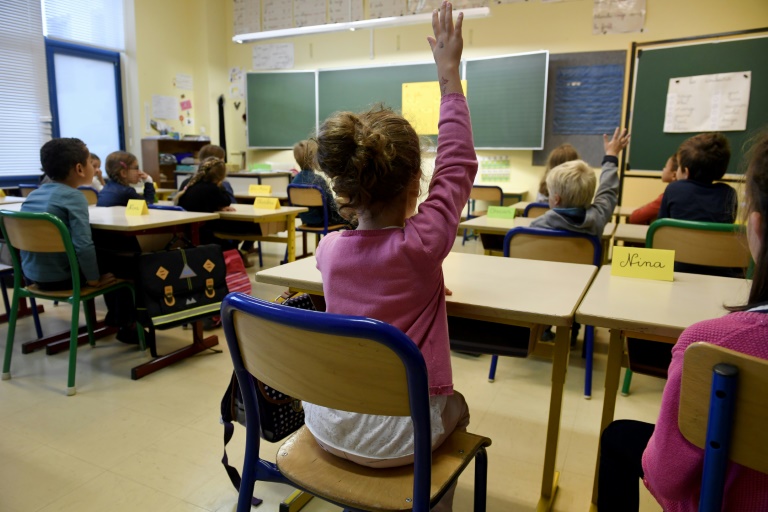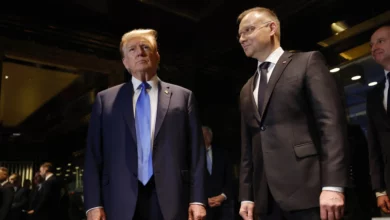
Texting under the table should be a thing of the past when French children return to class Monday following a nationwide ban on mobile phones in schools.
The ban, a campaign pledge of President Emmanuel Macron’s, was brought in under a law passed in July which also banishes tablets and smart watches from French primary and junior high schools.
High schools, taking students aged 15 to 18, will also be allowed to initiate partial or total bans as they reopen after the summer break, though they will not be obligatory.
Proponents say the law, which has prompted vigorous debate, will reduce distraction in the classroom, combat bullying and encourage children to be more active during recess.
Nearly 90 percent of French adolescents aged between 12 and 17 have a mobile phone, and supporters hope the ban will help limit the spread of violent and pornographic content among children.
Education Minister Jean-Michel Blanquer has hailed the legislation as “a law for the 21st century” that would improve discipline among France’s 12 million schoolchildren.
“Being open to technologies of the future doesn’t mean we have to accept all their uses,” he said in June when the bill was going through parliament.
PR ‘stunt’
But critics have dismissed the ban as a public relations exercise and predicted it will be difficult to apply.
The government has left schools to decide how to implement the new rules, recommending that they store students’ phones in lockers during the day — but some schools don’t have them.
Research shows that in French schools that had already declared their own ban, many pupils admitted to breaking the rules and using their phones anyway.
Schools all over the world have struggled to adapt to the rise of pocket-sized devices as parents grow increasingly anxious about the amount of time their children spend glued to the screen.
In 2015 New York Mayor Bill de Blasio lifted a ban on phones in his city’s schools on security grounds, saying parents should be allowed to stay in touch with their children.
Macron, a 40-year-old centrist, pledged widespread reforms when he was elected and education has been no exception.
Along with the mobile phone ban, he has halved class sizes in high-priority areas to 12 in a bid to narrow the massive gap in attainment between children from poor and wealthy families.
The scheme, which covered children aged six to seven this year, will be expanded in this new school year to cover those aged seven to eight.
At the other end of the age spectrum, a shake-up of the higher education system making university access more selective prompted a wave of student sit-ins this year.




